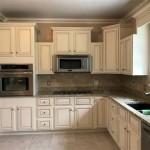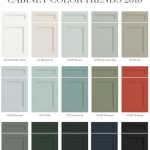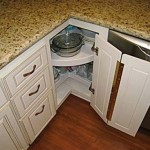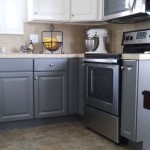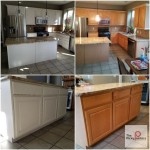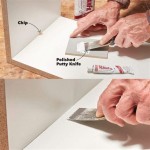Crown Molding for Kitchen Cabinets: A Guide to Elegance and Functionality
Crown molding, the intricate and graceful decorative trim that graces the upper edge of cabinets, offers a sophisticated touch to kitchens, elevating their ambiance. However, beyond its aesthetic appeal, crown molding also serves practical purposes, enhancing functionality and space utilization.
Aesthetic Appeal
Crown molding adds an instant touch of elegance and sophistication to kitchen cabinetry. The intricate profiles and ornate designs create a sense of grandeur and architectural interest, giving the kitchen a more refined and custom-built look. It draws the eye upward, creating the illusion of higher ceilings and a more spacious feel.
Conceals Imperfections
Crown molding strategically covers the gap between the top of the cabinets and the ceiling, providing a seamless transition and concealing any unsightly imperfections or uneven surfaces. This not only improves the overall aesthetic but also prevents dirt and dust accumulation in hard-to-reach areas.
Adds Storage Space
Certain crown molding profiles, such as the coved molding, create a small shelf-like space on top of the cabinets. This additional storage can accommodate small kitchen items, decorative pieces, or rarely used appliances, maximizing storage capacity and keeping the kitchen clutter-free.
Provides Indirect Lighting
Crown molding can be fitted with LED strip lighting, creating a subtle and ambient glow that illuminates the ceiling and creates a warm, inviting atmosphere. This indirect lighting can also highlight decorative elements and add visual interest to the kitchen.
Choosing the Right Crown Molding
Selecting the right crown molding for kitchen cabinets is essential to achieve the desired aesthetic and functional benefits. Consider the following factors:
- Kitchen Style: Match the molding style to the overall design of the kitchen, whether it's traditional, modern, or transitional.
- Cabinet Height: Choose a molding with a height and profile that complements the height of the cabinets.
- Ceiling Height: Lower ceilings call for smaller moldings, while higher ceilings can accommodate grander profiles.
- Material: Wood, polyurethane, and MDF are common materials for crown molding, each with its unique durability and price point.
Professional installation is highly recommended to ensure a seamless and secure fit. Crown molding can transform the look and feel of kitchen cabinets, adding elegance, functionality, and a touch of architectural charm.

Adding Crown Molding To Cabinets Young House Love

Diy Kitchen Cabinet Upgrade With Paint And Crown Molding

How To Add Crown Molding Kitchen Cabinets Abby Organizes

How To Add Crown Molding Kitchen Cabinets Abby Organizes

Adding Crown Moulding To Wall Kitchen Cabinets Momplex Vanilla Ana White

Adding Moldings To Your Kitchen Cabinets Remodelando La Casa

Diy Kitchen Cabinet Upgrade With Paint And Crown Molding

Adding Height To The Kitchen Cabinets Tempting Thyme

Are Crown Moldings Still A Thing Nelson Cabinetry

How To Install Crown Molding On Kitchen Cabinets Sawdust Girl
Related Posts

